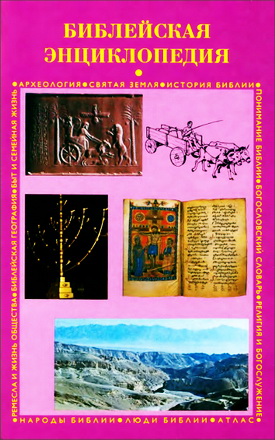
Quasten – Patrology – Volumes I-IV
The present volume is the first of a new Patrology that strives to place at the disposal of the English-reading public a solid intro- duction to Early Christian literature. So far all the manuals of Patrology in our language are translations. As a result, they do not pay enough attention to versions and studies in English, and have practically gone out of date by the time they reach the reader. Yet, it is especially within recent years that Patrology has taken great strides forward. New finds have been made, new sources opened up. One need but recall the astonishing fact that a sermon preached in the second century by the famous Melito of Sardes turned up among the University of Michigan papyri and was brought out by the American scholar Bonner. It is one publication among many for which we can thank the sands of Egypt. Even more striking was the recent discovery of twelve volumes of Egyptian papyri containing fourty-two Gnos- tic treatises at the ancient Chenoboskion to the north of Luxor. Many of these writings were known to us from the quotations of !renaeus and other anti-Gnostic authors but all of them had been lost. This new find is perhaps the greatest ever made in the patristic field. It will cast an entirely new light on the be- ginnings of Christian theology and the great controversy be- tween Christian doctrine and Hellenistic philosophy. Keeping step with such developments, the philologists have put out new critical editions, while the theologians have by their penetrating studies of the contents of the texts contributed notably to their elucidation and understanding.
For this reason the new Patrology sets great value on presenting a bibliography designed to inform both learner and specialist on the literature of the subject. Therefore, it lists (1) critical editions, (2) translations into modern languages particularly English, and (3) articles and monographs. In order to save time for the scholar and orientate him more readily, it has been thought best to give in full the titles of articles in periodicals instead ofmerely listing references. Since the reader can thus determine at a glance whether a particular study has anything he needs or not, he is spared considerable trouble and annoyance.
To arouse interest in the works of the Fathers, numerous excerpts are quoted in English. These are thought of as samples that, by giving the reader a taste of the beauty and sublimity of the Patristic writings, may tempt him to take in hand the ori- ginal and get his own impression of it, or, if that is too much for him, at least to read it in some good translation. Only this, if achieved, will put the student close to Patristic literature, because only then does he sense the atmosphere of Christian antiquity and begin to penetrate its world. The author’s experience as a teacher at the University occasioned his adopting this device. The selections are designed also to show’ the development of theology in the early centuries and to illustrate the approach of the Fathers to the deposit of faith. May the student share the feeling once expressed by Cardinal Newman: “The vision of the Fathers was always to my imagination, I may say, a paradise of delight.”
In conclusion it is my pleasant duty to acknowledge my obligation to Rt. Rev. Μ. J. Higgins, Ph. D., G. F. Diercks, Ph. D., and C. Bouman for their helpful suggestions. I wish also to thank my colleagues, Rev. J. C. Plumpe, Ph. D., and Rev. Patrick Skehan, S. T. D.
Johannes Quasten – Patrology – Vol. I - The Beginnings of Patristic Literature
Utrecht – Brussels: Spectrum Publishers, 1950. – 373 p.
Johannes Quasten – Patrology – Vol. I – Contents
Preface
List of abbreviations
INTRODUCTION
- I. The Concept and History of Patrology
-
2. General Works on the History of Ancient Christian Literature
- Special Works on Greek Literature
- Special Works on Latin Literature
- Special Works on Oriental Literature
- 3. The “Fathers” of the Church
- 4. General Works on the Doctrine of the Fathers
-
5. Editions of Early Christian Literature
- Editions of Patristic Texts
- Collections of Texts and Studies
- Collections of Patristic Texts for Students
- Translations
-
6. Works of Reference, Anthologies and Bibliographies
- Works of Reference
- Enchiridia and Anthologies
- Bibliographies
- 7. The Language of the Fathers
CHAPTER I. The beginnings of liturgical formulas and canonical legislation
- і. The Apostles’ Creed
- 2. The Didache
CHAPTER II. The apostolic fathers
-
1. Clement of Rome
- His Epistle to the Corinthians
-
Non-authentic Writings
- I. The So-called Second Epistle of Clement
- IL The Two Letters Addressed to Virgins
- III. The Pseudo-Clementines
- 2. Ignatius of Antioch
- 3. Polycarp of Smyrna
- 4. Papias of Hierapolis
- 5. The Epistle of Barnabas
- 6. The Shepherd of Hermas
CHAPTER III. The beginnings of Christian romance, folk stories and LEGENDS
-
The Apocryphal Literature of the New Testament
- 1. Early Christian Interpolations in Old Testament Apocrypha
- 2. Apocryphal Gospels
- 3. Apocryphal Acts of the Apostles
- 4. Apocryphal Apocalypses
- 5. Apocryphal Epistles of the Apostles
CHAPTER IV. The beginnings of Christian poetry
- 1. The First Christian Hymns
- 2. The Odes of Solomon
- 3. The Christian Sibylline Oracles
- 4. The Sayings of Sextus
- 5. Christian Poetry on Tombstone
CHAPTER V. The first acts of the martyrs
-
I. Acta Martyruni.
- 1. The Acts of St. Justin
- 2. The Acts of the Martyrs of Scilli
- 3. The Acts of St. Cyprian
-
II. Passiones and Martyria
- і. Martyrium Polycarpi
- 2. The Letter of the Churches of Vienne and Lyons
- 3. The Passion of Perpetua and Felicitas
- 4. The Acts of St. Carpus, Papylus and Agathonice
- 5. The Acts of Apollonius
- III. Legends of the Martyrs
CHAPTER VI. The GREEK APOLOGISTS
- 1· Quadratus
- 2. Aristides of Athens
- 3. Aristo of Pella
- 4. St. Justin
- 5. Tatian the Syrian
- 6. Miltiadcs
- 7. Apollinaris of Hierapolis
- 8. Athenagoras of Athens
- 9. Theophilus of Antioch
- 10. Melito of Sardis
- 11. The Epistle to Diognetus
- 12. Hermias
CHAPTER VII. The beginnings of heretical literature
-
Pre-Christian Gnosticism
- 1. Simon Magus
- 2. Dositheus and Menandei.
-
Christian Gnosticism
- 1. Basilides
- 2. Isidore
- 3. Valentinus
- 4. Ptolemy.
- 5. Hcracleon
- 6. Florinus
- 7. Bardcsancs
- 8. Harmonius
- 9. Theodotus
- 10. Marcus
- 11. Carpocratcs
- 12. Epiphanes
- 13. Marcion
- 14. Apelles
- 15. The Encratites
- 16. Julius Cassianus
- 17. Other Gnostic Writings
CHAPTER VIII. The beginnings of anti-heretical literature
- I. Papal and Episcopal Writings of the Second Century Against Heresies and Schisms
-
1. Soter
- 2. Eleutherus
- 3. Victor
- 4. Zephyrinus
- 5. Dionysius of Corinth
- 6. Pinytus of Gnossus
- 7. Serapion of Antioch
-
II. The Theological Refutation of the Heresies
- 1. Hegesippus.
- 2. Irenaeus
Indexes
-
I. References
- 1. Old and New Testament
- 2. Apocrypha 3!
- 3. Ancient Christian Writers
- 4. Modern Authors
- 5. Greek Words
- II. General Index
Johannes Quasten – Patrology – Vol. II - The Ante-Nicene Literature after Irenaeus
Utrecht – Brussels: Spectrum Publishers, 1964. – 472 p.
Johannes Quasten – Patrology – Vol. II – Contents
CHAPTER I. The Alexandrians
- The School of Alexandria
- Pantaenus
- Clement of Alexandria
- Origen
- Ammonias
- Dionysius of Alexandria
- Theognostus
- Pierius
- Peter of Alexandria
- Hesychius
- Appendix: The Apostolic Church Order
CHAPTER II. The Writers of Asia Minor, Syria and Palestine
- The School of Caesarea
- The School of Antioch
- Gregory the Wonder-worker
- Spurious Writings
- Firmilian of Caesarea
- Methodius
- Sextus Julius Africanus
- Paul of Samosata and Malchion of Antioch
- Lucian of Antioch
- Dorotheus of Antioch
- Pamphilus of Caesarea
- The Dialogue on the Orthodox Faith
- Appendix: The Sjnriac Didascalia Apostolorum
CHAPTER III. The Romans
- The Beginnings of Latin Christian Literature at Rome
- Minucius Felix
- Hippolytus of Rome
- The Muratorian Fragment
- Novatian
- Papal Letters of the Third Century
CHAPTER IV. The Africans
- The First Latin Versions of the Bible
- Tertullian
- Cyprian
- Arnobius of Sicca
- Lactantius
CHAPTER V. The Other Writers of the West
- Victorinus of Pettau
- Reticius of Autun
Indexes
-
I. References
- Old and New Testament
- Ancient Christian Writers
- Modern Authors
- Greek Words
- II. General Index
Johannes Quasten – Patrology – Vol. III - The Golden Age of Greek Patristic Literature From the Council of Nicaea to the Council of Chalcedon
Utrecht – Brussels: Spectrum Publishers, 1960. – 634 p.
Johannes Quasten – Patrology – Vol. III – Contents
List of abbreviations
Introduction
CHAPTER I. The Writers of Alexandra and Egypt
- Arius
- Alexander of Alexandria
- Athanasius
- Serapion of Thmuis
- Didymus the Blind
- Theophilus of Alexandria
- Synesius of Cyrene
- Nonnus of Panopolis
- Cyril of Alexandria
- Appendix: Two Liturgical Papyri of Egypt
CHAPTER II. The Founders of Egyptian Monasticism
- St. Antony
- Ammonas
- Pachomius
- Horsiesi
- Theodore
- Macarius the Egyptian
- Macarius the Alexandrian
- Evagrius of Pontus
- Palladius
- Isidore of Pelusium
- Shenoute of Atripe
- The Apophthegmata Patrum
CHAPTER III. The Writers of Asia Minor
- Eusebius of Nicomedia
- Theognis of Nicaea
- Asterius the Sophist
- Marcellus of Ancyra
- Basil of Ancyra
- The Cappadocian Fathers
- Basil the Great
- St. Gregory of Nazianzus
- Gregory of Nyssa
- Amphilochius of Iconium
- Asterius of Amasea
CHAPTER IV. The Writers of Antioch and Syria
- Eustathius of Antioch
- Aetius of Antioch
- Eunomius of Cyzicus
- Eusebius of Caesarea
- Acacius of Caesarea
- Gelasius of Caesarea
- Euzoius of Caesarea
- Eusebius of Emesa
- Nemesius of Emesa
- Christianity and Manichaeism
- Hegemonius
- Titus of Bostra
- Cyril of Jerusalem
- Apollinaris of Laodicea
- Epiphanius of Salamis
- Diodore of Tarsus
- Theodore of Mopsuestia
- Polychronius of Apamea
- John Chrysostom
- Acacius of Beroea
- Antiochus of Ptolemais
- Severian of Gabala
- Macarius Magnes
- Hesychius of Jerusalem
- Nilus of Ancyra
- Mark the Hermit
- Diadochus of Photice
- Nestorius
- Eutherius of Tyana
- Proclus of Constantinople
- Gennadius of Constantinople
- Basil of Seleucia
- Church Historians of Constantinople
- Philip Sidetes
- Philostorgius
- Socrates
- Sozomen
- Theodoret of Cyrus
Indexes
-
I. References
- Old and New Testament
- Ancient Christian Writers
- Modern Authors
- Greek Words
- II. General Index
Johannes Quasten – Patrology – Vol. IV - The Golden Age of Latin Patristic Literature From the Council of Nicea to the Council of Chalcedon
Utrecht – Brussels: Spectrum Publishers. – 699 p.
ISBN: 0-87061-086-4
Johannes Quasten – Patrology – Vol. IV – Contents
Introduction by Johannes Quasten
Preface
List of Abbreviations
- I. THE TURNABOUT OF THE FOURTH CENTURY
- II. HILARY OF POITIERS AND THE ARIAN CRISIS IN THE WEST
- III. AMBROSE OF MILAN, AMBROSIASTER AND NICETAS by Maria Grazia Mara
- IV. THE TRANSLATIONS. JEROME AND RUFINUS by Jean Gribomont
- V. CHRISTIAN POETRY by Angelo DiBerardino
- VI. SAINT AUGUSTINE by Agostino Trape
- VII. ADVERSARIES AND FRIENDS OF AUGUSTINE by Vittorino Grossi
- VIII. WRITERS OF GAUL by Adalbert Hamman
- IX. ITALIAN WRITERS UNTIL POPE LEO THE GREAT by Basil Studer
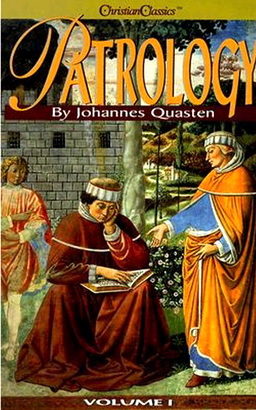
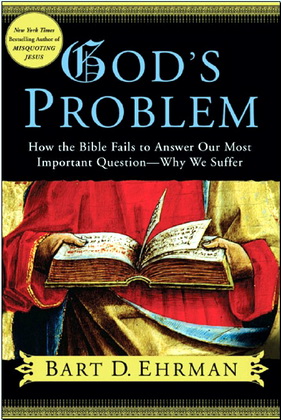
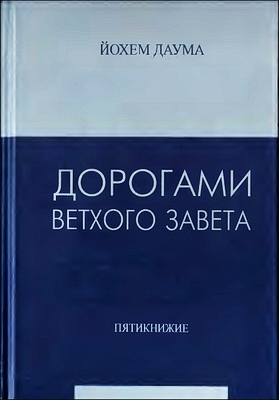

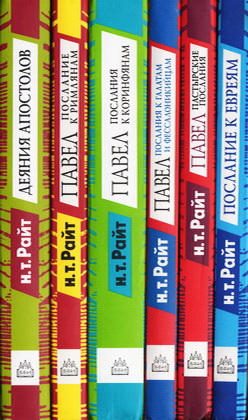
Комментарии (1 комментарий)
Премного благодарен! Интересуюсь святыми Отцами, особенно латинскими и греческими, поэтому такая литература очень полезна!